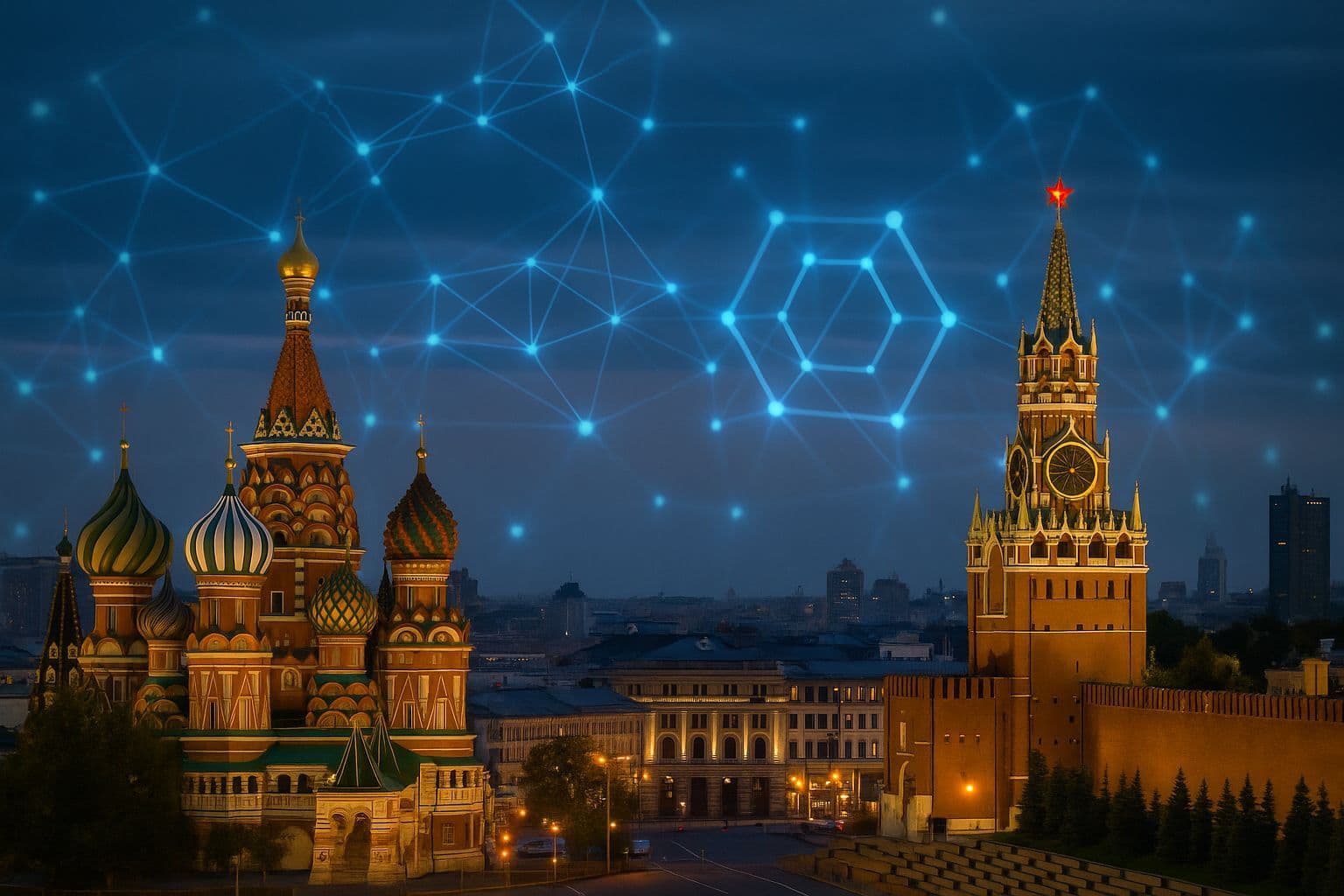Moscow signals a cautious green light
In a policy shift that few saw coming, the Central Bank of Russia (CBR) announced plans to permit commercial banks to engage in limited crypto operations under a highly controlled framework.
The move marks a delicate pivot for one of the most conservative regulators in global finance — and could signal Russia’s attempt to modernize cross-border payment systems while maintaining tight state control.
Under the proposed model, licensed banks will be allowed to offer digital asset services such as token custody, payments, and settlement, provided they meet new capital adequacy and reserve requirements.
CBR Governor Elvira Nabiullina framed the decision as a “measured step” toward innovation without destabilizing the ruble or enabling illicit flows.
“Our task is to create a narrow but clear corridor for digital assets within the financial system — not to open the floodgates,” Nabiullina said at the Finopolis fintech forum in Sochi on Friday.
From prohibition to cautious participation
For years, Russia banned or heavily restricted crypto-related activities, citing financial stability and money-laundering concerns. In 2022, amid sanctions and capital flight, the government even considered criminal penalties for using crypto in domestic payments.
But the geopolitical landscape has shifted. Facing continued exclusion from Western financial networks, Moscow is now exploring blockchain-based rails for international trade, particularly with China, India, and Middle Eastern partners.
The new framework reflects a calibrated retreat from blanket prohibition — allowing regulated entities to experiment under supervision while maintaining surveillance over digital capital flows.
Analysts say this hybrid model mirrors China’s approach to digital finance, where the state controls the rails but encourages limited innovation to strengthen autonomy.
Why it matters for global markets
Liquidity and regional arbitrage
Crypto analysts believe that Russia’s entry into controlled digital asset banking could subtly shift liquidity patterns across Eurasia.
If implemented, major exchanges and OTC desks operating in Dubai, Hong Kong, or Kazakhstan could see increased ruble-linked flows as Russian banks begin facilitating settlement via state-sanctioned digital assets or stablecoins.
While volumes may remain modest, the symbolic impact is significant. It marks the first time the CBR — one of the G20’s most conservative institutions — has publicly acknowledged that digital assets can coexist with traditional banking infrastructure.
Sanctions workaround narrative
Western policymakers will be watching closely. Any crypto-facilitated payments system involving sanctioned entities could draw scrutiny from the U.S. Treasury and the EU.
However, the CBR emphasized that all participants must report cross-border transactions and comply with international AML standards, attempting to distance the policy from sanctions evasion concerns.
“This is not a gray-market maneuver,” said a Moscow-based economist. “It’s an attempt to build legitimacy under supervision, not outside it.”
Market response and speculation
Short-term
Crypto markets barely moved on the news, with Bitcoin hovering around $109,200 and Ethereum near $3,820 as of Monday morning. But institutional observers view this as a regulatory inflection point — one that could accelerate the “de-dollarization” narrative and increase regional adoption of ruble- or yuan-linked stablecoins.
Long-term
If the pilot succeeds, it could inspire other emerging markets — particularly in Central Asia and Eastern Europe — to adopt similar frameworks that allow crypto innovation under central bank supervision.
“Russia is effectively testing the next generation of controlled finance,” said one policy strategist in Frankfurt. “They want the benefits of blockchain efficiency without losing an inch of state control.”
The next test for Moscow
Despite the optimism, significant hurdles remain. Russia still lacks clear taxation rules, consumer protection laws, and standardized custody frameworks for digital assets.
Moreover, local banks may hesitate to enter the crypto space without guarantees on liquidity support and regulatory clarity.
Experts warn that early missteps — such as exchange rate volatility or compliance breaches — could trigger an immediate policy reversal.
Still, the tone has changed. After years of outright rejection, the Kremlin’s message to the banking sector is now one of “limited permission, maximum oversight.”
Signals to watch next
- Pilot bank list: Expect 3–5 major state-owned banks to be first movers under CBR supervision.
- Cross-border settlement tests: Likely to involve energy exports or commodity trade in partnership with BRICS nations.
- Digital ruble integration: The CBR may link crypto operations to its ongoing digital ruble project for monitoring and liquidity.
- Policy spillover: Kazakhstan and Turkey could adopt similar “licensed corridor” models within months.
The policy pivot beneath the politics
This isn’t about crypto enthusiasm — it’s about financial sovereignty.
As global payment rails fragment, Moscow’s cautious embrace of digital assets underscores a pragmatic shift: use blockchain to bypass bottlenecks, but never surrender control.
The world’s most reluctant crypto regulator may have just taken its first decisive step into the digital future — on its own terms.

